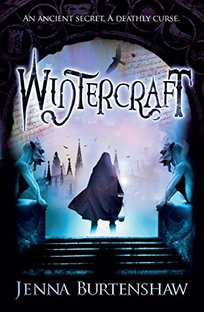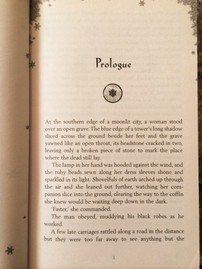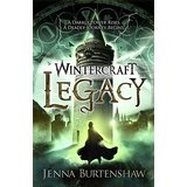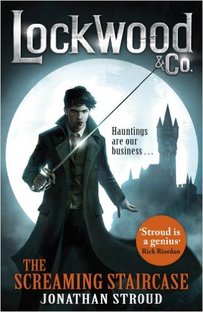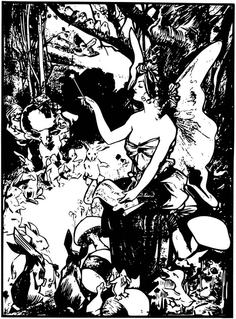|
Today on the blog I am going to review two books that I have finished recently. The first one I knew nothing about before I began reading, the next is the second in the Lockwood & Co. series by Jonathan Stroud which I was confident I would like as I loved the first (The Screaming Staircase - read my review here: book-review-the-screaming-staircase-by-jonathan-stroud.html). 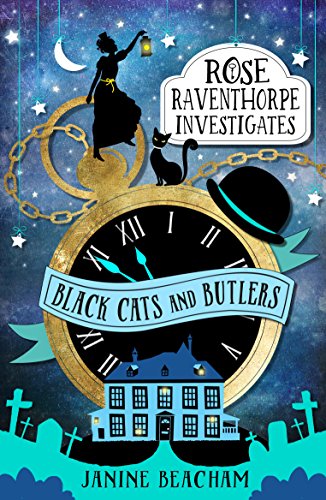 re So, let's turn to 'Rose Raventhorpe Investigates: Black Cats and Butlers' by Janine Beacham. It is the first in a series which is probably aimed at middle-grade readers. Not that I let that stop me, and I'm glad because I thoroughly enjoyed it and have been recommending it to anyone who I think will appreciate it. As the title suggests, the plot centers around a mystery - in fact it is a murder mystery with a few other elements to it. Someone is killing butlers and the main character, a young girl named Rose from a well-to do family, decides to investigate the matter herself when events relating to the matter cross her path. It is set in a fictional version of York in (I think) the nineteenth century. Rose and her friend Emily are fun characters and the butlers who they encounter during their investigations are quirky and engaging (who knew butlers were so good with swords?). The plot moves along at a lovely pace, which was a relief as I have read too many books lately which progressed so slowly I lost interest. Not so here. Each time I put it down I was impatient to return and, in the days before I had so many other demands on my time, I would have read it in a couple of sittings. The setting, fictional Yorke, was nicely gothic and the whole thing had just a spice of darkness to it. As I live close to York and have been many times (I have set one of my own stories there), I did find it a little confusing at the beginning as I wasn't sure whether it was meant to be real York or not, but once I decided that it wasn't (getting to the bit involving the Shambles which had clearly been renamed demonstrated that it was a mostly fictional place), I was able to move on and just use my knowledge of York to compliment the descriptions within the book. Overall, a fun and lively read which brought my imagination to life (and made me want to pop back to York!). I will definitely acquire the next in the series. 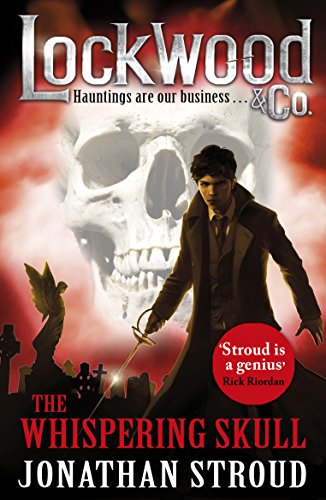 Now it's the turn of the second instalment in Jonathan Stroud's excellent series for children: Lockwood & Co.. It is called, 'The Whispering Skull' and it follows 'The Screaming Staircase'. Although Amazon places it in the same age bracket as Rose Raventhorpe (9-11), I have to say that Lockwood & Co. is likely to suit an older audience than Miss Raventhorpe. The prose and plot are more complex and the subject matter is darker (although Black Cats & Butlers is also quite dark). Stroud has chosen to write this series from the point of view of a member of Lockwood's team, rather than Lockwood himself. Her name is Lucy and she has a special talent in relation to ghosts. She is one member of a three person team (the others being Lockwood and George) who are teenage ghost specialists in a world where only children can hear and sense the many ghouls which comprise 'the Problem'. As with the first book, there is a mystery at the heart of the plot, namely who has stolen a dangerous relic and to what ends? However, for me, the book's great charm comes from the interactions between the team members. I really care about what happens to them. Each is strongly written and individual. There is mystery, humour, tension and action and a wonderfully murky atmosphere. Whilst it didn't quite engage me as much as the first one, it was a close run thing and I will be reading the third. The writing is wonderful - seemingly effortless yet of very high quality. I wish I knew how he does it!
|
Bernadette KeelingI love most types of fiction - crime, mystery, fantasy. Oh, and historical fiction of course and middle-grade books and, well, you get the picture. Subscribe for Blog updates via email:Categories
All
Archives
April 2019
Unique, handcrafted items for readers and writers:
|
B.M. Keeling



